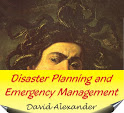Yet the issue is still very important and the problem we discussed seems to be getting worse.
One of the key words in academia is 'more' (the other one is 'money'). More students paying more fees, with more outcomes - but always positive, of course. Ian and I had examined a wide variety of PhD theses. Some were good, of course they were, and in those cases standards had not slipped. Others were atrocious and, moreover, the universal expectation was that they would pass.
Over the past two or three years I have examined, or tried to examine, more than a dozen PhD theses. I have my own ideas about what constitutes an acceptable thesis, but as this is not intended to me a publishable paper in the subject I will not go through them here. They are pretty straightforward and somewhat traditional. I am not averse to the new mode of creating a thesis out of a collection of published papers, but:-
- they must have coherence and contribute to a uniform goal
- they must be published in refereed journals, not merely be submitted or in press
- they must be preceded by a substantial introduction which explains how they fit together and form a progression of ideas towards the unified goal of the thesis
- even though they will be autonomous, self-contained works, the papers must be linked by a strong common thread, which represents a single process of the development of ideas.
Ian and I have both found ourselves in tense situations and we have both been vilified for our respective judgements of the acceptability of theses. There is increasingly an expectation that to submit a thesis is to have it passed for the award of the degree. In the past, quality control was such that this was usually the case. There were few incentives to promote a sub-standard thesis. Not any more.
The trouble with examining a PhD thesis is that one is examining the supervisor as much as the student. The only exception to this are the very rare cases in which the thesis is submitted for examination against the advice of the supervisor. After lax or incompetent supervision, the reaction of the supervisor may be as unpleasant as that of the student when judgement finally arrives. This is very stressful for all concerned. More than once, as examiner, I have been put in the position of being regarded as the culprit, merely because I pointed out the very evident deficiencies of the thesis. Yet the examiner has to be the guarantor of standards.
Disaster risk reduction is a field that has attracted more and more academics, but as we have done little to establish a consensus about what one needs to know to be expert in this field, there are those who lack the knowledge to be able to supervise research students in it. They therefore fail to see everything from the small-scale errors to the major failures of strategy in a student's work.
Broadly speaking, I have found that the most cocksure candidates are those whose work is least admirable. Self-deception all so easily replaces solid ability. In the worst instances, the student and supervisor may try for all they are worth to usurp the position of the examiner. They may well succeed, such are the elaborate mechanisms in universities to avoid the stain of failure. PhD students are fee-paying customers, and the customer is always right.
The main point of Ian's and my article in THE was that the PhD is the 'gold standard' of the academic world. If we let inferior theses pass, in a few years their authors will be the PhD supervisors of even worse candidates. And it seems to be happening.
The only ray of sunshine upon this gloomy picture is that under the current circumstances there is no inherent reason why a PhD thesis should not be good. It is still possible to produce a rigorous piece of work that genuinely advances the frontiers of knowledge. Most of the doctoral theses I have examined in recent years have not been good enough to receive my wholehearted endorsement. Indeed, I have more than once refused to proceed with the examination: let someone else take the strain. However, I did recently examine one that was a tour de force, masterly in its explanation, penetrating in its insight. Experiences like this keep one going.
Reference
Alexander, D. and I. Davis 2014. Fit to supervise? Times Higher Education 20 February 2014: 34-38.

